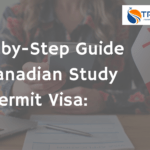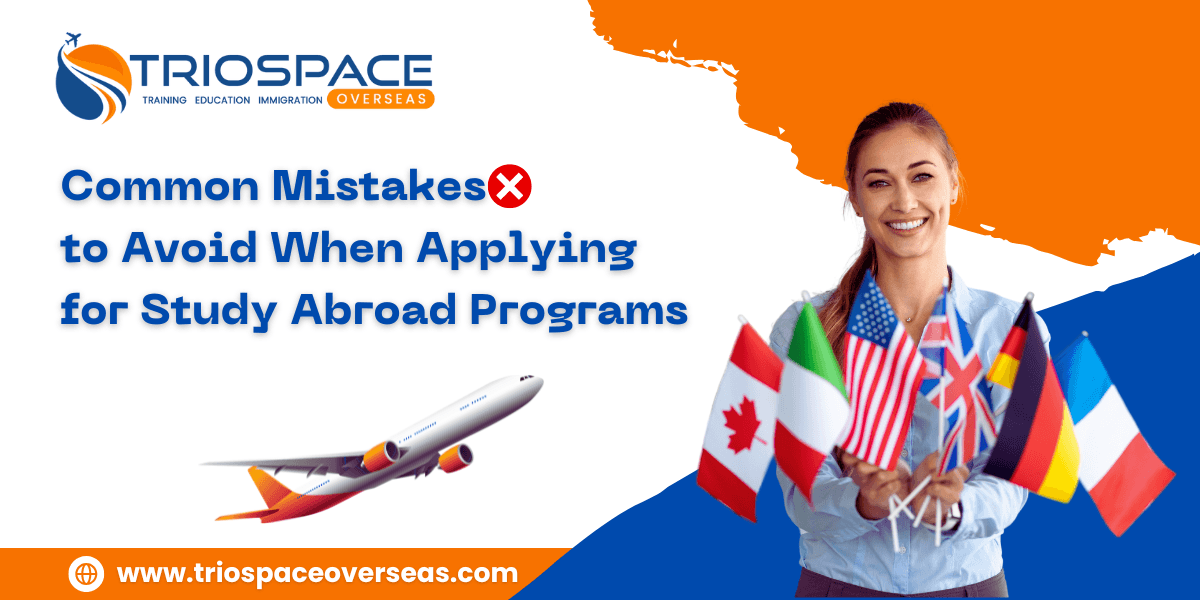
Unlocking Opportunities: Your Ultimate Guide to UK Student Visa
According to preliminary data from the Department of Home Affairs, a total of approximately 486,107 applications for student visas were received from India in the year ending September 2023. The latest reports indicate that the United Kingdom issued the highest number of student visas to Indian applicants in 2022. The British High Commissioner confirmed that 25% of the total 280,000 student visas issued by the UK were granted to Indian students. This represents a substantial increase of 73% in the number of Indian student visas compared to the previous year.
In a recent development, the Indian and UK governments have launched the Young Professional Scheme (YPS), which aims to assist eligible individuals in securing a UK Work Visa for a period of up to two years. This initiative primarily targets individuals between the ages of 18 and 30, providing them with an opportunity to gain valuable work experience in the UK.
As the number of Indian students availing student visas to study in the UK continues to rise, the YPS comes as a welcome step. It not only opens doors for Indian students to pursue higher education in the UK but also provides avenues for them to establish themselves in the UK job market post-graduation. This mutually beneficial partnership creates opportunities for cultural exchange, skill development, and economic growth for both countries involved.
Please Watch our video for a complete process of How to Study in UK | Complete UK Visa Process in Telugu | Triospace Overseas
UK Student Visa or UK Visa Types
When it comes to studying in the UK for a period longer than six months, it is essential for students to familiarize themselves with three primary UK study visas or visa types. These visas serve as the gateway for international students to pursue their educational aspirations in the UK. Understanding the differences and requirements of each visa is crucial to ensure a smooth and successful study experience in the country.
1. Tier 4 (General) Student Visa: The Tier 4 (General) Student Visa is designed for non-European Economic Area (EEA) and non-Swiss students who wish to study at a UK educational institution. To be eligible for this visa, the applicant must have received an offer from a licensed Tier 4 sponsor institution and provide evidence of sufficient funds to cover tuition fees and living expenses during their stay. Additionally, applicants must meet the English language proficiency requirement and have a Confirmation of Acceptance for Studies (CAS) from their chosen institution.
2. Short-term Study Visa: The Short-term Study Visa is suitable for individuals planning to study in the UK for a period of up to six months (or up to 11 months for English language courses). This visa category is ideal for those who intend to participate in short courses, language programs, or academic research activities. It should be noted that students taking up a full-time degree course cannot apply under this visa category. Applicants must provide proof of their acceptance onto a course, sufficient funds to support themselves, and intend to leave the UK upon completion of their studies.
3. Tier 4 (Child) Student Visa: Specifically designed for children aged 4 to 17 who wish to pursue their studies in the UK, the Tier 4 (Child) Student Visa requires a different set of requirements compared to the Tier 4 (General) Student Visa. The applicant must have parental consent, a place at an independent school, and sufficient funds to cover their studies and living expenses. Additionally, the applicant must possess written consent from a parent or guardian and provide evidence of suitable accommodation arrangements in the UK.
These three study visa options offer diverse opportunities for international students looking to expand their knowledge and experience in the UK. It is crucial for students to carefully evaluate their circumstances and choose the visa type that aligns with their academic goals and expected duration of stay. Additionally, it is strongly advised to consult the official UK government websites or seek support from educational institutions for the most up-to-date and accurate information regarding visa requirements and application procedures. Remember, thorough research and proper planning are key to starting your UK study journey on the right foot.
UK Student Visa Eligibility
A student is required to have been granted acceptance into a licensed student sponsor’s full-time academic program.
A scholar should possess an ample amount of financial assets to sustain themselves throughout the entire period of their educational program.
A student should possess the essential skills of speaking, reading, writing, and comprehending the English language.
If a student is between the ages of 16 and 17, it is necessary for him or her to obtain parental consent.
UK Student Visa Cost
The cost of obtaining a UK Student Visa, previously known as the Tier 4 (General) Student Visa, is £363 (approximately Rs 38,336) for applicants applying from outside the UK. Moreover, a healthcare surcharge must also be paid, the amount of which is determined by the length of your intended stay.
Please find the different payment methods available for visa application below:
1. Online Payment: You can conveniently make your payment using either a MasterCard or Visa card through the online platform.
2. Demand Draft: If you prefer to make your payment via demand draft, you can do so at the visa application center or at selected branches of Standard Chartered Bank.
3. Cash Payment: For those who prefer to pay in cash, you have the option to do so at the visa application center or at selected branches of Standard Chartered Bank.
Please note that these are the approved methods of payment for visa applications.
Students should take note that if they intend to transition to a UK Student Visa while already residing in the UK, they will be required to pay a sum of £490 (equivalent to INR 50,056).
Important updates
The UK government has put forward a plan to raise visa fees, impacting international students, including those from India. If the proposal is approved, visa applicants will be required to pay higher fees as well as health surcharges to the National Health Service. UK Prime Minister Rishi Sunak stated that the fee increase may range from 5% to 7% for all visa categories. The additional revenue will be used to support public sector wage increases for professions such as police officers, teachers, and junior doctors. Sunak emphasized that his government aims to avoid increased borrowing to cover these expenses, due to concerns about inflation.
Highlights
The expenses related to work and visa applications will undergo a 15% increase.
Moreover, all other types of visa applications will experience a minimum 20% surge in their costs.
Prospective international students intending to pursue their studies in the United Kingdom might be subjected to an Immigration Health Surcharge of £776 per year, a significant jump from the previous fee of £470.
UK Student Visa: Documents Required
When it comes to applying for a UK student visa, there are distinct requirements that set it apart from a tourist visa. As a prospective student, you must gather a comprehensive set of documents, including both mandatory and supporting documents relating to your financial and academic records. Additionally, it’s crucial to keep in mind and fulfill other necessary requirements. To ensure a smooth application process, it is essential to consult the UK Student Visa checklist prior to attending your visa interview at the consulate.
Before you begin the application process for a student visa, it is important to gather the necessary documents. By having the following documents ready, you can ensure a smooth and efficient application process:
1. Complete Student Visa Application Form: This form is essential for your student visa application. Make sure you complete it accurately and provide all the required information.
2. Parental Consent (For Applicants Under 18): If you are below 18 years of age, you will need to provide proof of your parents’ or guardian’s consent. This ensures that you have permission to study in the UK.
3. Letter of Acceptance on the Course: Your approved education provider will provide you with an acceptance letter, commonly known as a CAS (Confirmation of Acceptance for Studies), as well as a visa letter. Both of these letters are official and unconditional offers of a place on a course of study. It is important to note that the visa letter must be issued no more than six months before you apply for your UK study visa. Therefore, it is crucial to time your application accordingly.
Remember, it is recommended that students apply for their UK study visa within six months of receiving their CAS. By ensuring you have all the necessary documents, you can increase the chances of a successful visa application and embark on your educational journey in the UK.
4. While possessing a visa letter is undeniably important, it is crucial to understand that it by no means guarantees a successful application. It is imperative for the applicant to fulfill all the requirements stipulated by the relevant category and adhere to any additional regulations specified in the immigration rules.
5.One such requirement is providing proof of funds, which entails demonstrating that you have sufficient finances to cover your course fees for the first year of study as well as living expenses for up to a maximum of 9 months (equivalent to 1 academic year). The amount of funds necessary depends on whether the applicant is a child or an adult, as well as whether they will be studying in or outside of London. It is essential to showcase that the funds have been held for a minimum of 28 days, with the 28-day period concluding no more than one month before the date of the visa application.
A. To fulfill the necessary living expenses (excluding fees) for a timeframe of up to nine months, it is vital to demonstrate the specified amount of money, ensuring absolute uniqueness throughout the content. For instance, individuals residing in London must show £12,006 for the entire nine-month duration, equivalent to £1,334 per month. On the other hand, those living outside London are required to demonstrate £9,207 for nine months, equivalent to £1,023 per month.
B. Nonetheless, if a student has been present in the United Kingdom for a minimum of 12 months, holding a valid visa, no evidence of funds needs to be provided during the visa application process.
6.Receipt of payment confirmation for visa fees
7.ATAS certificate, if required based on your nationality and chosen course
8.Salary statements
9.Authentic copies of academic transcripts or provisional certificates
10.Official scorecards of examinations such as TOEFL, GMAT, IELTS, and others.
Types of Courses valid under UK Student Visa
A full-time course provides the opportunity to acquire a certification that falls below the level of a degree. It involves daytime study for at least 15 hours per week.
An intensive educational program that facilitates the acquisition of a degree-level or higher qualification on a full-time basis.
A comprehensive program designed to acquire a degree-level or higher qualification within the framework of a UK higher education program.
A part-time educational initiative aimed at acquiring a certification that surpasses the level of a traditional degree.
A well-established preparatory course designed specifically for postgraduate medical and dental professionals.
An English language curriculum that focuses on achieving a proficiency level of B2 or higher, in accordance with the Common European Framework of Reference for Languages.
Need help with your UK visa? Seek expert guidance at Triospace Overseas.
UK Student Visa Process: How to Apply
Applying for a UK Student Visa involves following a series of steps. The application for a UK Study Visa typically takes around three weeks to process once all the necessary information has been submitted.
Step 1: The initial step entails determining your eligibility for a student visa. It is crucial to provide evidence demonstrating the following:
1. Confirmation of Acceptance for Studies (CAS): You must possess a confirmed spot at the educational institution, be it a school, university, or college, where you have plans to pursue your studies.
2. Adequate Financial Resources: You are required to exhibit sufficient funds, often referred to as “maintenance or funds,” to cover your tuition fees and living expenses while residing in the United Kingdom.
Step 2 – Gather your necessary paperwork
Step 3 – Submit your online application : To initiate the visa application process, you must first register and establish an account on the authorized website for UK Visas. Once you have completed the online application form, it is imperative that you print it out and affix your signature. Additionally, you will be required to utilize the online appointment calendar provided to schedule an appointment at the designated visa application center. After wrapping up the online application, you will be sent an email notification detailing your unique application number.
Step 4 – Complete your payment for the visa application. There are multiple methods available to pay your application fee, ensuring a hassle-free process.
Option 1: Payment at Standard Chartered Bank – An efficient way to pay your fee is by visiting select branches of Standard Chartered Bank. Upon payment, the bank will issue a demand draft in the name of the ‘British High Commission’.
Option 2: Demand draft from a nationalized or foreign bank – If convenient, you have the option to obtain a demand draft from either a nationalized or foreign bank. The associated bank charges may differ depending on the service provider. Remember, the demand draft should be made in the favor of the ‘British High Commission’.
Option 3: Payment at the visa application center – When you personally submit your visa application at the designated visa application center, you have the opportunity to make the payment for the visa application fee.
Option 4: Online payment – For a convenient and secure payment experience, you can opt to pay your visa application fee online. Simply utilize either a Visa or MasterCard credit or debit card for the online transaction.
By offering these varied payment options, the process of paying your visa application fee is made more flexible and accessible. Choose the method that suits your preferences and complete this crucial step with ease.
Step 5 – Attend your scheduled appointment at the visa application center to complete the submission of your application, along with providing your facial photograph and fingerprints. It is essential to book an appointment at the visa application center beforehand to ensure a smooth process.
Students have the option to withdraw their applications, and in order to do so, they are required to reach out to UKVI, which stands for UK Visas and Immigration. Once the processing of their application has not commenced, they will be eligible for a refund of their fee.
Exclusive MBA Scholarship in UK for Indian Students – Find out more!
FAQs for UK Study Visa:
1. Q: What is a UK study visa?
A: A UK study visa, also known as a Tier 4 (General) student visa, is a permission granted
to foreign students who wish to pursue their education in the United Kingdom.
2. Q: How do I apply for a UK study visa?
A: To apply for a UK study visa, you need to follow these steps:
a. Secure an offer from a recognized UK educational institution.
b. Prepare the necessary documents, including proof of funding and English
language proficiency.
c. Apply online through the UK Home Office website.
d. Pay the application fee and attend a biometric appointment.
e. Wait for a decision on your visa application.
3. Q: What are the eligibility criteria for a UK study visa?
A: To be eligible for a UK study visa, you must meet the following requirements:
a. Have an unconditional offer from a licensed UK educational institution.
b. Show proof of sufficient funds to cover tuition fees and living expenses.
c. Demonstrate proficiency in English language (unless exempt).
d. Provide evidence of a clean criminal record.
e. Meet the health and character requirements.
4. Q: Can I work while studying in the UK on a study visa?
A: Yes, as a student on a UK study visa, you are allowed to work part-time during term time (up to 20 hours per week) and full-time during holidays. However, it is important to ensure that your studies remain the primary focus.



















